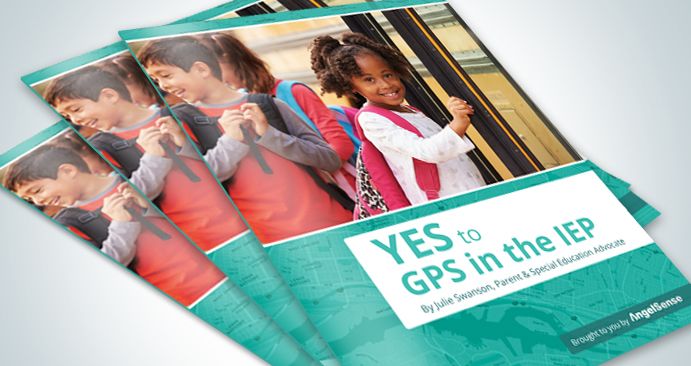The Complete Guide to Including GPS in your Child’s IEP
Updated on March 13, 2024[vc_row][vc_column][vc_column_text]The skyrocketing occurrence of wandering incidents among children with autism has raised the discussion of utilizing Global Positioning Systems (GPS) to address safety skills in a student’s IEP (Individualized Education Program). Wandering is common, dangerous and puts tremendous stress on families and schools.

Safety, or the ability to protect one’s self, is a vital health & safety adaptive skill for students; and for life after graduation from school. This important adaptive, non-academic skill, can and should be captured in a student’s Present Levels of Academic Achievement and Functional Performance in the IEP. IEP goal(s) can and should be developed to address the adverse impact this lack of skill (or safety risk) has on the student.
Additionally, GPS can be considered an assistive technology device and service in accordance with the IDEA (Individuals with Disabilities Education Act). Bringing these facts together, your school team can say “yes” to GPS in the IEP. To download the complete guide to documenting GPS in the IEP click here.
AngelSense is committed to creating a safer world for children with special needs. We designed the AngelSense GPS tracking solution to give parents the peace of mind that their child is safe at all times.[/vc_column_text][/vc_column][/vc_row]
Get peace of mind from AngelSense, the groundbreaking AI-based assistive technology designed to enhance safety and peace of mind for individuals with special needs and their families. Our solution ensures you stay connected with your loved ones, empowering a higher level of independence while maintaining safety. Learn more about how AngelSense can make a difference for your family.


Hi Lisa,
We have 3 pricing packages to choose from: https://www.angelsense.com/pricing
We are currently running a Back to School sale of more than 50% off the starter kit (depending on which package you choose).
Kind regards,
Sidra Collins
Community Manager